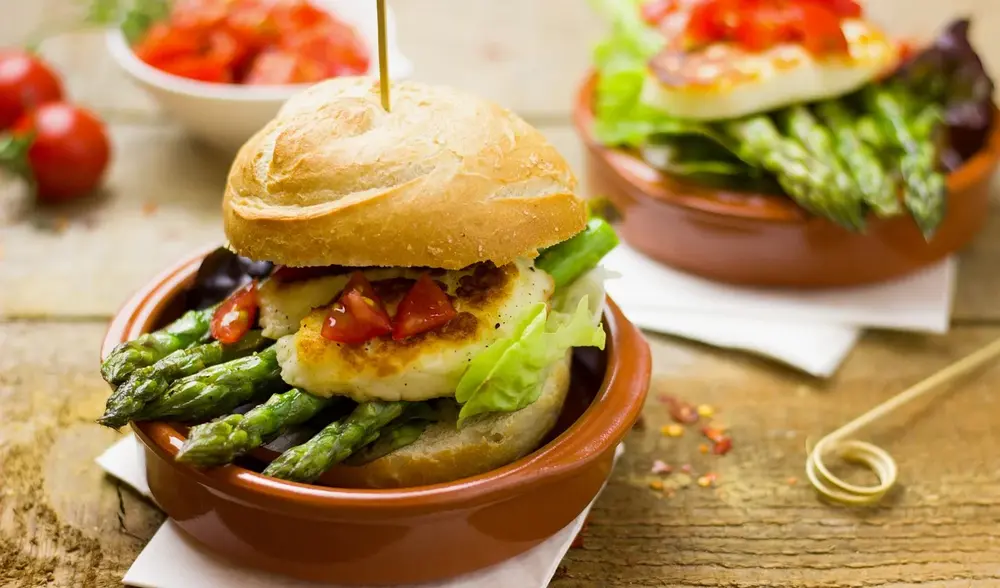The Protein Solution

In 2023, Russia’s actions in Ukraine led to yet another international outcry (Nagurney, 2023). The reason: food security. Pulling out of the Black Sea Grain Initiative led to fears of food shortages and economic suffering, as Russia refused to commit to allowing battle-torn Ukraine—a key supplier of grain—the ability to trade it, raising serious concerns for food security.
As a result, the EU has rightly condemned Russia’s withdrawal (Council of the EU, 2023). But even as the EU supports those affected by Russia’s aggression, it continues to fund one of the main drivers of food insecurity at home: animal agriculture (Good Food Institute Europe, 2023). In fact, “the EU feeds almost as much wheat to farmed animals (42.7 million tonnes) as Russia’s (32 MMT) and Ukraine’s (14 MMT) exports combined” (p. 1).
This isn’t a fluke: according to a recent paper published in the journal Nature Food, 82% of the EU’s Common Agriculture Policy (CAP) funding goes to animal-based food (38% directly and 44% to feed) (Kortleve et al., 2024). Those EU-funded foods are responsible for “84% of embodied greenhouse gas emissions of EU food production while supplying 35% of EU calories and 65% of proteins” (Abstract).
As demand for animal proteins rises, the clear science of its damage, the overwhelming evidence about the benefits of plant-based diets, and the rise of technology to enable greener, alternative proteins have a clear message: it is time for a healthy, responsible shift away from animal agriculture.
Let’s look at some of the details.
Animal agriculture’s impacts
Raising animals for food (and other commercial purposes, such as clothing) is inherently resource-intensive, as it requires using animals as machines to turn plant-based calories into nutrients which we then consume indirectly by eating them. This is an inefficient use of limited resources. Especially in times of crisis, like the current war in Ukraine and the looming climate disaster, rerouting this food directly to humans can strengthen food security for millions of people.
A look at the numbers:
- Climate: Animal agriculture is responsible for 16.5% of global emissions (Swanson et al., 2023), and in the EU, the figure is roughly 8.5% (Directorate-General, 2020).
- Land Use: Europe uses 29% of its land for animal agriculture,[1] while studies show that plant-based proteins require 41–98% less land than animal-based proteins (Swanson et al., 2023).
- Antimicrobial Resistance: Antimicrobial resistance already contributes to the deaths of 33,000 Europeans a year (European Commission, 2020). Continuing to provide farmed animals with antibiotics could threaten many miracles of modern medicine (World Health Organization, 2023).
- Zoonotic Pandemics: Increasing demand for animal protein is predicted to be one of the major anthropogenic causes of emerging zoonotic diseases (United Nations Environment Programme and International Livestock Research Institute, 2020).
- Human Health: Studies have shown a link between higher rates of negative health outcomes and diets with a high proportion of animal-based foods compared with diets with more plants (Willett et al., 2019).
- Animal Welfare: Commercialized animal agriculture leads to, especially in the case of factory farming, severe animal mistreatment and suffering (Borrud, 2020).
What the EU can do
The EU is in a position to help drive a global food systems transformation that prioritizes health, environmental and climate protection, economic well-being, and food security without restricting people’s desires for nutritious, delicious, and affordable proteins or leaving farmers out to dry. However, it has so far fallen short of its ability to do so.
Current EU measures to ensure sustainable food systems have failed to live up to their potential: these policies, if fully implemented, will amount to a mere 1.5% reduction in emissions in the agriculture sector between 2020 and 2040 (European Environment Agency, 2023).
The EU should act on its commitment to become “the first climate neutral continent” (European Commission, n.d., subtitle) by lending more support to a transition away from animal-based agriculture and towards alternative proteins, such as fermented, plant-based, and cultivated meats.
A recent report by Future Matters (Future Matters, 2024a) utilized a novel methodology that led to finding the eight most “impactful” (p. 6) policies the European Commission can adopt. Several of the policies focus on providing a greater emphasis on alternative proteins. For example, the EU can support research and innovation, create a fair regulatory framework, and leverage public procurement. The report’s executive summary highlights that the “implementation of readily scalable innovative practices has the potential to collectively reduce emissions by 3.2 Gt CO2e per year globally and cut the cost of achieving the 1.5-degree target by nearly 1 trillion euros by 2050” (Future Matters, 2024b, p. 5). As far as the EU is concerned, “protein diversification can reduce food related emissions by up to 90% and decrease agricultural emissions by 60%” (p. 5).
This is because plant-based foods emit much less carbon than animal-based foods: “regardless of whether you compare the footprint of foods in terms of their weight (e.g. one kilogram of cheese versus one kilogram of peas); protein content; or calories, the overall conclusion is the same: plant-based foods tend to have a lower carbon footprint than meat and dairy. In many cases a much smaller footprint” (Ritchie, 2020, para. 3).
Conclusion
With uncertainty in the air as concerns about war and climate change abound, now is the time to take actions that safeguard food security. The EU has an opportunity to do so. As intensive animal agriculture continues to take its toll, any benefits are rapidly vanishing. We should help foster a food system transition that is good for farmers, the planet, and people.
The EU can tackle climate change intelligently by championing plant proteins. And in doing so, it can help expand our resources — like those rendered inaccessible by Russia’s war in Ukraine.
[1] Calculation based on the fact that 42% of the EU’s land is used for agriculture (European Environment Agency, 2024) and 68% of that land is used for animal agriculture (European Commission, 2020).
References
Borrud, G. (2020, October 23). 'The conditions are catastrophic' — Germany's factory farms. DW. https://www.dw.com/en/the-conditions-are-catastrophic-inside-germanys-factory-farms-on-the-green-fence/a-55349478
Council of the EU. (2023, July 17). Black Sea Grain Initiative: Statement by the High Representative on behalf of the European Union on Russia’s termination of the Black Sea Grain Initiative [Press release]. European Council and Council of the European Union. https://www.consilium.europa.eu/en/press/press-releases/2023/07/17/black-sea-grain-initiative-statement-by-the-high-representative-on-behalf-of-the-european-union-on-russia-s-termination-of-the-black-sea-grain-initiative/
Directorate-General for Agriculture and Rural Development. (2020, October 14). Commission publishes external study on future of EU livestock. European Commission. https://agriculture.ec.europa.eu/news/commission-publishes-external-study-future-eu-livestock-2020-10-14_en
European Commission. (n.d.). The European Green Deal. https://commission.europa.eu/strategy-and-policy/priorities-2019-2024/european-green-deal_en
European Commission. (2020). Farm to Fork Strategy: For a fair, healthy and environmentally-friendly food system. European Union. https://food.ec.europa.eu/system/files/2020-05/f2f_action-plan_2020_strategy-info_en.pdf
European Environment Agency. (2023). Progress and prospects for decarbonisation in the agriculture sector and beyond [Briefing]. https://www.eea.europa.eu/publications/Progress-and-prospects-for-decarbonisation/progress-and-prospects-for-decarbonisation
European Environment Agency. (2024). Land use. https://www.eea.europa.eu/en/topics/in-depth/land-use#:~:text=Europe%20is%20one%20of%20the,the%20environment%20and%20climate%20change
Future Matters. (2024a). 8 EU policy priorities for global decarbonization: Pathways to European climate leadership. https://future-matters.org/wp-content/uploads/2024/04/240402_FM-Report_8Policies_EU_9MB.pdf
Future Matters. (2024b). Executive summary: 8 EU policy priorities for global decarbonization: Pathways to European climate leadership. https://future-matters.org/wp-content/uploads/2024/04/240322_FM-ExecutiveSummary_8Policies.pdf
Good Food Institute Europe. (2023). Establishing european leadership in protein diversification [Position paper]. https://gfieurope.org/wp-content/uploads/2023/07/Final-_-GFIE-Position-Paper-Protein-Strategy_Jul-23.pdf
Kortleve, A. J., Mogollón, J. M., Harwatt, H., & Behrens, P. (2024). Over 80% of the European Union’s Common Agricultural Policy supports emissions-intensive animal products. Nature Food, 5, 288-292. https://doi.org/10.1038/s43016-024-00949-4
Nagurney, A. (2023, July 21). What does the future of food security look like after the collapse of the Black Sea grain deal? World Economic Forum. https://www.weforum.org/agenda/2023/07/food-security-black-sea-grain-deal/
Ritchie, H. (2020, February 4). Less meat is nearly always better than sustainable meat, to reduce your carbon footprint. Our World in Data. https://ourworldindata.org/less-meat-or-sustainable-meat
Swanson, Z., Welsh, C., & Majkut, J. (2023). Mitigating risk and capturing opportunity: The future of alternative proteins [Report]. Center for Strategic & International Studies. https://www.csis.org/analysis/mitigating-risk-and-capturing-opportunity-future-alternative-proteins
United Nations Environment Programme and International Livestock Research Institute (2020). Preventing the next pandemic: Zoonotic diseases and how to break the chain of transmission [Report]. https://wedocs.unep.org/bitstream/handle/20.500.11822/32316/ZP.pdf
Willett, W., Rockström, J., Loken, B., Springmann, M., Lang, T., Vermeulen, S., Garnett, T., Tilman, D., DeClerck, F., Wood, A., Jonell, M., Clark, M., Gordon, L. J., Fanzo, J., Hawkes, C., Zurayk, R., Rivera, A., De Vries, W., Sibanda, L. S.,…Murray, C. J. L. (2019). Food in the Anthropocene: the EAT–Lancet Commission on healthy diets from sustainable food systems. The Lancet, 393, 447-492. https://doi.org/10.1016/S0140-6736(18)31788-4
World Health Organization. (2023, November 21). Antimicrobial resistance. https://www.who.int/news-room/fact-sheets/detail/antimicrobial-resistance
About the Author

Eddie Jean is a Master of Public Policy student at the University of Erfurt’s Willy Brandt School of Public Policy. He graduated from Dickinson College in 2019 with a B.A. in International Studies. He has a generalist background, with experience in international studies, behavioral science, and non-profit operations and fundraising. His research interests include food systems, animal welfare, and food security.
~ The views represented in this blog post do not necessarily represent those of the Brandt School. ~